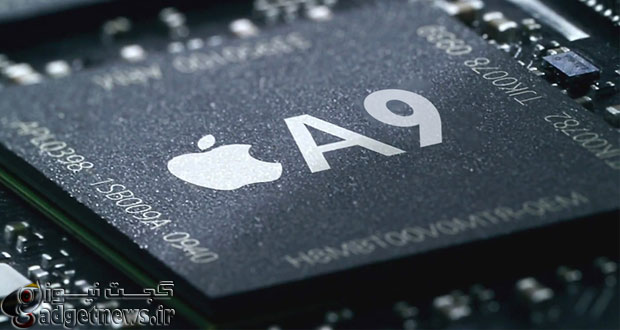با استناد به اخبار منتشر شده در ماه اخیر، مشکلات بین دو کمپانی بزرگ سامسونگ و اپل برطرف شده و همچنین اپل قصد دارد ساخت پردازندههای سری A را مجدد به شرکت سامسونگ واگذار نماید.اکنون روزنامه کرهای Electronic Times اعلام کرده که شرکت سامسونگ به طور رسمی ساخت پردازندههای A9 را برای شرکت اپل آغاز کرده است.
طبق این گذارش، کمپانی سامسونگ تولید این پردازندهها را در کارخانهای در ایالات تگزاس با استفاده از تکنولوژی چهار نانومتری FinFET آغاز کرده است.
لازم به ذکر است که استفاده از تکنولوژی ذکر شده، سبب کوچکتر شدن ابعاد پردازندهی A9 نسبت به مدلهای قبلی خود تا میزان 15 درصد میشود. این بدان معناست که پردازنده A9 تا 35 درصد انرژی کمتری مصرف میکند و همچنین تا 20 درصد قدرت بیشتری نسبت به مدل قبلی خود خواهد داشت.
این بار تولید سری پردازندههای A نسبت به مدلهای پیشین زودتر آغاز شده که با توجه به این موضوع، احتمال میرود که شرکت اپل قصد استفاده از پردازندهی A9 را در مدل بعدی گوشی هوشمند خود یعنی iPhone 6s را دارد.
نکته دیگری که باید به آن اشاره کرد این است که احتمالا ساخت پردازندههای S1 که در ساعت هوشمند اپل مورد استفاده قرار خواهد گرفت، به شرکت سامسونگ واگذار شود. این در حالی است که دو کمپانی بزرگ سامسونگ و اپل رقابت سنگینی را در صنعت گوشیهای هوشمند با یکدیگر دارند. اما به نظر میرسد که در سال 2015 شاهد همکاریهای زیادی از جانب این دو غول تکنولوژی خواهیم بود.
منبع : pocket-lint
iPhone 7 is go, Samsung starts manufacture of Apple's A9 chip
iPhone 7 is go, Samsung starts manufacture of Apple's A9 chip
Samsung has started making the A9 chip for Apple, the processor believed to be at the heart of the next iPhone; the iPhone 7 or, if Apple sticks to tradition, the iPhone 6S.
It was revealed several months ago that Samsung had won the business to manufacture the chip, and now it has been leaked by sources that the company has started the process in the Austin plant in the US.
It is said to be using 14-nanometre FinFET technology for the chips, which are said to use 35 per cent less power to run, while having 20 per cent more processing power. They are also 15 per cent smaller than 20nm chips – ideal for smartphone or tablet manufacturers that need more room in the case for larger batteries, etc.
It is still early days in the life of the next iPhone or iPad for that matter, with new devices not expected until the latter stages of 2015. It is likely therefore that the first batches of A9 chips will be destined for prototype testing rather than full production models.
Rumours also suggest that the 14nm FinFET technology could be employed in chips for other clients. At least one other was suggested by several online sources yesterday.
 گجت نیوز آخرین اخبار تکنولوژی، علم و خودرو
گجت نیوز آخرین اخبار تکنولوژی، علم و خودرو 





